ads
London Veterinary Surgeries 02086770976
London Veterinary Surgeries 02086770976
Welcome to London Veterinary Surgeries
London Veterinary Surgeries is a network of veterinary surgeries committed to providing the very best in veterinary care.
London Vets is a group of award-winning surgeries established in 2006 by veterinary surgeons Alan van Heerden and Dane Walker. They have both worked in numerous high quality practices across London and have taken their years of experience to improve on the level of vet care provided in London. Alan and Dane are both dedicated to providing excellent service to clients and respectful, caring and expert care for animals.
A strong caring attitude underpins the running of all of the surgeries and the staff that work there. All the vets have many years of dedicated small animal practice and many have certificates in further advanced areas. The nurses and support staff are friendly, dedicated and trained to the highest level. We are committed to going above and beyond to provide a timely diagnosis and first-class treatment at a reasonable price.
We can offer a full range of services, including:
- Preventative care
- Routine and advanced surgery
- Advanced scanning
- Emergency surgery
- Hospitalisation
Convenient Sunday opening at our Streatham Hill and Mayow Vets hospital
London Veterinary Surgeries was established in 2006 and is the sister group to Kent Veterinary Surgeries.
The London Group consists of nine surgeries – Blackheath Veterinary Surgery, Streatham Hill Veterinary Surgery, The Animal Clinic (Blackheath), Wimbledon Veterinary Surgery, The Corner Veterinary Surgery, Mayow Veterinary Surgery, Parish Lane Veterinary Surgery, Croydon Veterinary Surgery and Mitcham Veterinary Surgery.
The surgeries span across south London and cover Wimbledon, Merton, Morden, Mitcham, Croydon, Sutton, Cheam, Streatham, Clapham, Brixton, Tooting, Balham, Norwood, Sydenham, Penge, Forest Hill, Lewisham, Blackheath, Shooters Hill, Lee, Charlton and surrounding areas of London.
Advanced surgery and medicine
Our team of compassionate and highly skilled veterinary surgeons have the medical and surgical experience to perform all routine surgeries and many non-routine procedures, such as orthopaedic surgery, on site. We believe in investing in our vets and equipment and keeping up to date with advancements in medicine. Our surgeries’ equipment is of the highest quality with ultrasound, digital radiography, laser therapy, full orthopaedic kits and high quality Doppler ultrasound. If your pet requires surgery, or has a complicated health problem you know that our team will have the skills to treat them safely. Just like NHS doctors they undertake regular CPD training, ensuring that your pet receives the very best veterinary treatments available.
Preventative Healthcare
Preventative health and wellness checks are a key part of the care we provide our four-legged friends. Our philosophy is to focus on preventative care and regular health checks are an important part of this belief system. We believe that health and wellness starts with good nutrition, continues through preventative health care such as regular de-worming, and flea control, topped off with regular check ups with one of our amazing vets. Having these regular touch points throughout the year means that any problems or unusual symptoms can be spotted and treated early.
Our VIP Healthcare Plan
Helping you take care of your pet is what we enjoy doing the most, which is why we created our suite of VIP Healthcare Plans. Our Healthcare Plan helps you spread the cost of your pet’s everyday preventative health care so you can relax and enjoy the precious moments with your VIP.
Flea and Worming treatment
Flea control
Unfortunately fleas are a very common problem and can once you have a flea infestation, it is very difficult to get rid of the problem. These blood sucking parasites cause a multitude of problems for your pets from skin allergies to mouth ulcers and they can also carry worms and may even bite you! Alarmingly flea eggs and larvae can live in the house for up to 18 months and can provide a reservoir for infestation is not treated appropriately.
Our vets will determine the best flea programme tailored specifically to your pet and lifestyle. We have a wide range of excellent products to suit different pets and owners. In general, we recommend a monthly spot-on product which is applied to the back of the neck. Unlike similar flea medications, this has the added advantage of providing protection against roundworms and lungworm. Please contact us to discuss your pets’ needs and the parasite control most suitable for their lifestyle.
Worming control
Regular worming treatment will keep your pet worm-free and the humans in your house safe. Cats and dogs pick up worms from their mothers, other pets, eating slugs and snails and by coming into contact with the faeces of other animals. There are several types of worms that will cause disease ranging from weight loss to severe life-threatening diarrhoea. Roundworm and some types of tapeworm can be passed on to people, particularly children, and can cause disease and even blindness.
Another worm of significance for dogs is the lungworm. There have been more incidences of lungworm over the last few years with a related increase in fatalities. Symptoms range from coughing and pneumonia, to diarrhoea and vomiting, or the blood not being able to clot and subsequent strokes and neurological problems.
We offer comprehensive protection against worms for cats and dogs and generally recommend:
- Monthly treatment with a de-worming tablet up to six months of age
- Subsequent de-worming every three months
The worming drugs we recommend are only available from a veterinary surgery and are far more effective than those you can buy in a pet shop and supermarkets. If you need help giving a worming or flea treatment we are more than happy to do this for you.
VIP Healthcare Plan
All of our recommended flea and worming treatment are available on our VIP Health Care Plan. The Plan will help spread the cost of your pet’s everyday care!
Vaccinations
We recommend that all puppies are vaccinated at 8 and 10 weeks of age and kittens should be vaccinated at 9 weeks and 12 weeks. Vaccinations are a very important part of routine care for your pet to protect them against some potentially lethal diseases. The nose to tail health check that we perform before any vaccination is very important to detect problems and diseases early – from dental disease to cancer.
Cats
We vaccinate against Cat Flu, Enteritis and Feline Leukaemia Virus (this is a common cause for tumours in cats). After the initial course annual booster injections are given to ensure disease protection.
Join our VIP Healthcare Plan
As part of the Plan your cat will be entitled to our full primary vaccination course, protecting your cat from deadly diseases.
Dogs
We vaccinate against the four core diseases of Distemper, Hepatitis, Parvovirus and Leptospirosis. Luckily most of these diseases are relatively rare however they can be fatal if not caught and treated early. In addition to the four core diseases, we recommend vaccinating against Kennel Cough if your dog is likely to mix with lots of dogs or will be kennelled. Kennel cough is a very common disease, and whilst rarely fatal, causes significant inconvenience and discomfort. This vaccine can be done from 8 weeks and is given annually with the booster.
Join our VIP Healthcare Plan
Our Plan includes all vaccinations including kennel cough.
Rabbits
We advise vaccinating against Myxomatosis and Viral Haemorrhage Disease (VHD). We recommend that the injection is given from 12 weeks of age and then annually as a booster. In addition to the vaccination our vet will perform a thorough examination of your rabbit as they are prone many avoidable conditions such as bad teeth and gut problems.
Join our VIP Healthcare Plan
All vaccinations are included as part of the Plan.
Neutering
We strongly recommend neutering all pets not intended for breeding as this can prevent or reduce the risk of a number of potentially serious diseases. As we rehome cats alongside the RSPCA we are also very aware of the number of unwanted pets that are currently in the rehoming system.
It is really important to get your pet neutered for a number of reasons including:
- Stops unwanted pregnancies
- Can reduce or prevent tumours
- Can reduce or prevent several unwanted diseases
- Makes your pet happier and healthier
Female animals are spayed from 6 months old. Apart from preventing unwanted pregnancies this can reduce the risk of mammary cancer and prevent false pregnancies and a potentially fatal womb infection called Pyometra. We may on occasion opt to spay dogs after their first season in certain breeds but this will be discussed with your vet at one of the puppy checks.
We can neuter pets:
- from 5-6 months in cats
- from 6 months in dogs
Neutering requires a general anaesthetic so your pet will need to stay with us for the day.
If you would like to find out more about neutering your pet please give us a call.
Dental Care
Did you know that up to 50% of pets over three years old are suffering with dental disease? Dental disease is one of the most common problems we see in veterinary practice and like with humans can cause significant pain and suffering. Pets have the similar problems with plaque, tartar, gingivitis and periodontal disease as us humans. Poor dental hygiene can lead to bad breath, infection, pain and the loss of teeth. Dental disease is more common in older pets but can occur in younger animals too.
Prevention
The good news is that it is usually resolved if addressed early with appropriate care. Our philosophy is to focus on preventative care and regular dental check-ups at a health assessment are an important part of this belief system. If our vets spot any indication of dental disease they may recommend a dental treatment such as a scale and polish or if they suspect extractions are necessary they will suggest x-rays to take a look below the gum line.
Signs to look out for
If you are not sure whether your pet has dental problems, please see the following list of common signs:
- Bad breath
- Dribbling
- Sore mouth
- Difficulty eating
- Loose teeth or tooth loss
- Pawing or rubbing at the mouth
- Bleeding gums
- Yellow or brown tartar on the teeth
Health Checks and Clinics
It goes without saying that you know your pets better than anyone else, but of course you cannot spot everything. There are some common, but serious, diseases that have subtle symptoms in their early stages, and it can take an expert eye to spot those signs.
Health and wellness checks are a key part of the animal care we provide our four-legged friends. At DNA Vetcare we believe that health and wellness starts with good nutrition and regular health checks from an early age. We share your desire to make sure your pet is healthy, and to want to help you keep them that way!
We offer a range of clinics to keep your cherished pet happy and healthy from puppy and kitten hood all the way through to their more senior years.
Hospitalisation
We hope your pet never needs to be hospitalised, but if they do you can be assured that their overnight stay and care will be of the highest quality. Your pet will stay in modern, clean, air-conditioned kennels providing comfortable hospitalisation. If your pet has stay with us overnight, it is important that they are as calm and relaxed as possible. We know that cats are more relaxed in quiet, peaceful environment so we care for our cat and dog patients in separate wards. This approach greatly reduces stress and anxiety for both cats and dogs and is particularly helpful when treating conditions which are exacerbated by stress. We also have a separate isolation ward to protect our patients against any infectious diseases.
If your pet requires an overnight stay they will be taken care of by our team of skilled nurses who live on site, providing optimal care and safety. They will administer medicines, change IVs, monitor vital signs and of course dispense cuddles!
Pet Travel Advice
The PET travel scheme allows pet owners in the UK to take their dogs, cats and ferrets to other European countries and then return with them without need for quarantine. We have Official Veterinarians (OVs) who are experienced at completing the Pet Passport paperwork. Please note that for many non-EU countries (e.g. South Africa, Australia, New-Zealand etc.) you cannot use a Pet Passport, and an Export Health certificate (EHC) is instead required.
For up-to-date information on your legal obligations when travelling abroad with your pet, we recommend that you contact Department for Agriculture, Environment and Rural Affairs for full details of current requirements.
Pet passports
Taking your pet to Europe can be very exciting, but it does require advance planning in order to ensure that all the required documentation and vaccinations are in place. Before travel your pet must:
- Have a valid Pet Passport signed by an Official Veterinarian
- Be microchipped
- Have been vaccinated against rabies at least three weeks before travelling
- Be protected against ticks for the whole time you are away. Ticks in Europe carry dangerous diseases that we don’t have in the UK. We recommend that you check your pet for ticks after walks and remove any you find with a tick remover.
- Have tapeworm treatment administered by a vet 24 – 120 hours before your scheduled arrival back to the UK (dogs only)
Depending on where you are going, you may also need Sandfly protection against Leishmania and also Heartworm protection. These diseases are not present in the UK but are found in southern Europe, so please talk to us for specific advice that suits both your plans and your pet.
Please note that for many non-EU countries (e.g. South Africa, Australia, New-Zealand etc.) you cannot use a Pet Passport, and an Export Health certificate (EHC) is instead required.
During normal working hours
If possible phone your local surgery to inform them of your arrival.
Otherwise, come straight down to your nearest surgery – there is normally a veterinary surgeon on site or nearby.
Outside normal working hours
Our clients can contact the following emergency care providers:
Vets Now Thamesmead
Please ring 020 8310 7713 for help and advice. Even in an emergency, you must telephone in advance so that they can prepare for your arrival.
Address: 1c Eynsham Dr, Thamesmead, London SE2 9RQ
South London Emergency Centre
If possible call them in advance on 020 8677 0976 so they can prepare for your arrival.
Address: 23 Streatham High Rd, Streatham, London SW16 1EX
- veterinal
- Location
- London
- Country
- United Kingdom
- Address
- 23 Streatham High Rd, Streatham,
London
SW16 1EX
Locate on map - Phone number
- Show Phone
- Show E-mailThis email address is being protected from spambots. You need JavaScript enabled to view it.
- Website
- https://need-a-pro.com/
- Ad Type
- Job search
- Category
- Pet Care
- Subcategory
- Vets
- Date added
-
Thursday, 28 November 2019
6 years 2 months ago - Views
- 4478
- Id
- 2353
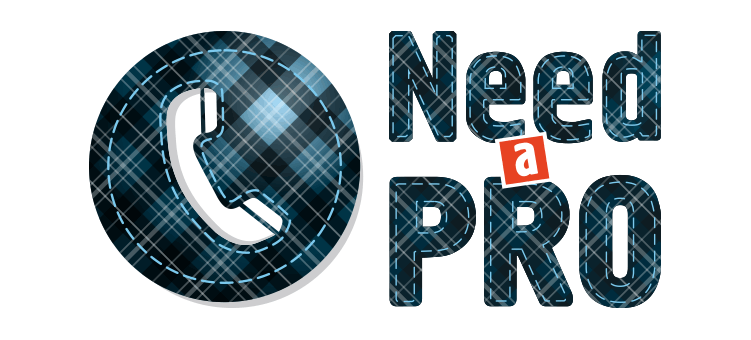





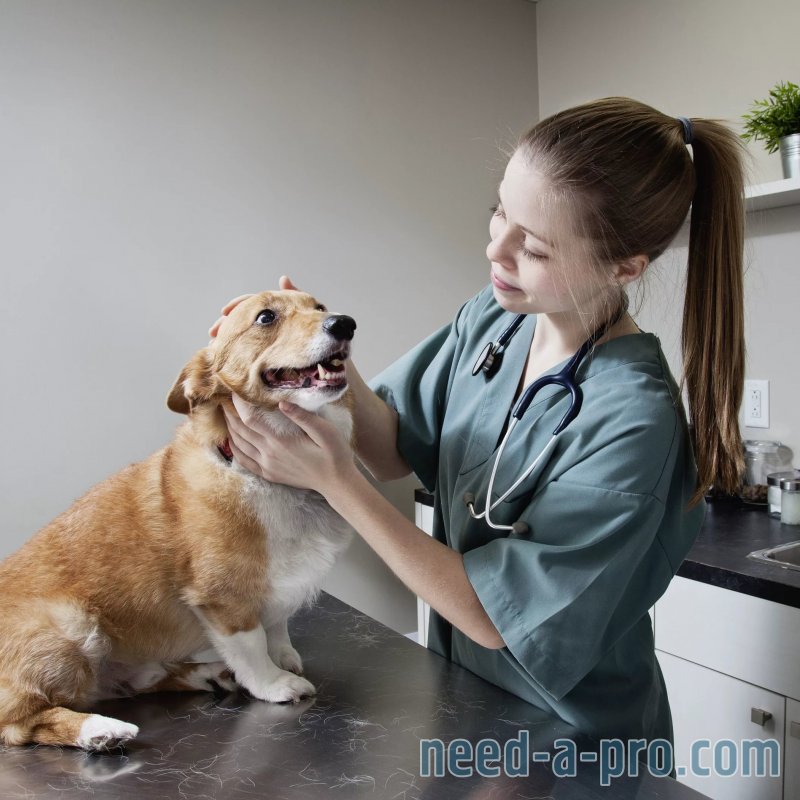
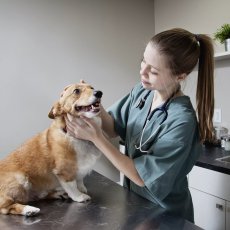
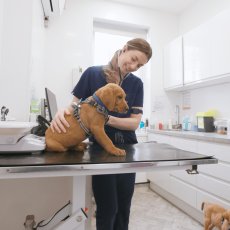

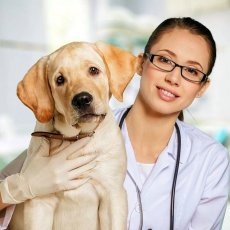
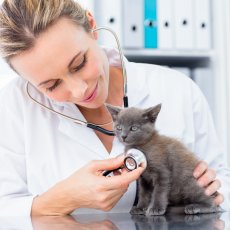
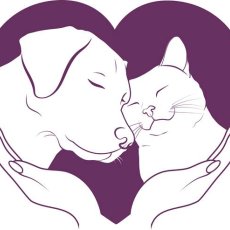
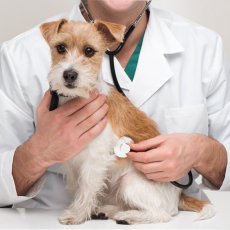

 Vectora Design
Vectora Design